Book Now
This score and word-of-mouth content are provided to Google,
Posted as a summary of Goole ratings and reviews


STORY - Oct. 2021
The present and future of Yambaru is supported by a new cycle of agriculture and food.
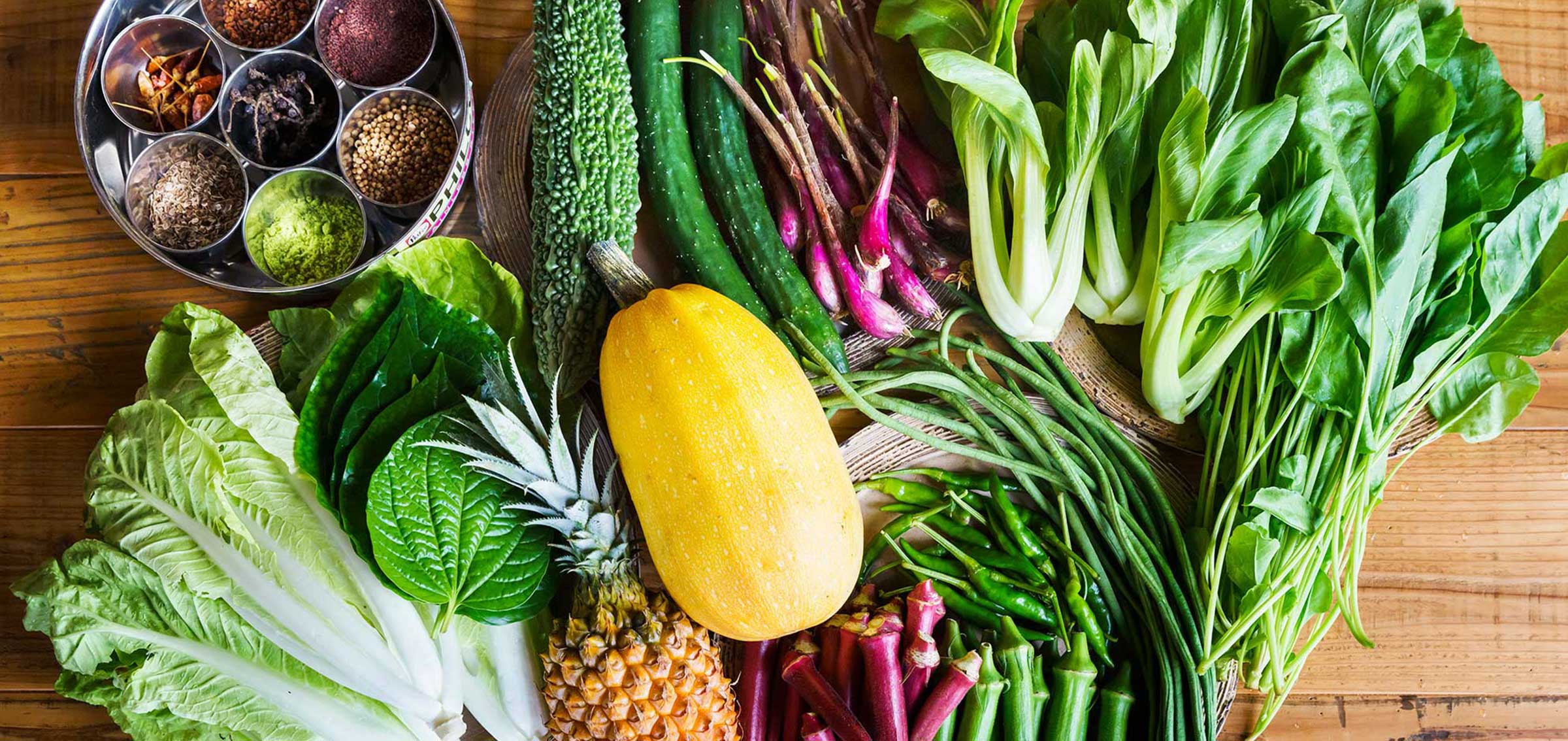
We would like to introduce Mr. Yukio Yoshino (representative of Cooksonia Co., Ltd.) who conveys the appeal of local produce through various initiatives such as Yambaru Haruser Project and "on the farm", and Mr. Satoshi Nakamura who was the head chef at Oriental Hotel Okinawa in 2021. The two parties are exploring a menu that incorporates vegetables produced in Yambaru, the northern part of the main island of Okinawa, while at the same time maintaining a service that protects Yambaru as a Natural World Heritage Site. What is the perspective of each of these things? While discovering the true value of Yambaru, new communication supporting the ethical use of agriculture and food is being developed.
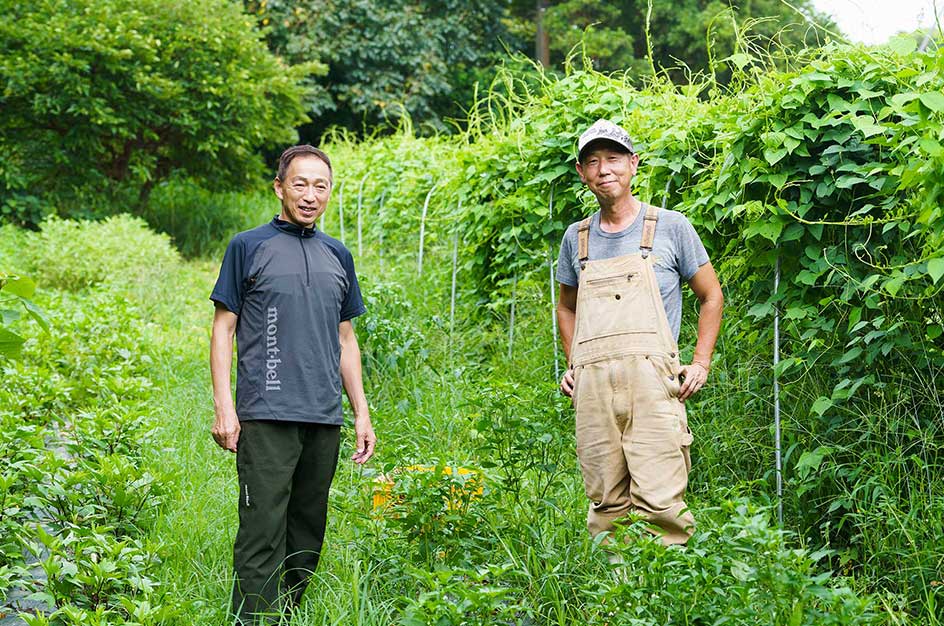
Mr. Nakamura: It's clear when you look at the fish in the sea that their color provides them with protection from ultraviolet rays. But also the green and yellow vegetables and fruit have a strength against the sun and heat. Their ability to develop in harsh conditions is evident in their taste and aroma. It's hard to express in words, but I feel energy when I pick them up.
Mr. Yoshino: Okinawan produce is highly nutrious. Global warming has created many new places with temperatures higher than Okinawa, but that cannot imitate the sunlight coming from directly above. It can be said that in the process of developing protection from the ultraviolet rays of the sun shining on Okinawa located at 24 to 28 degrees north latitude, produce matures with a great deal of flavor.
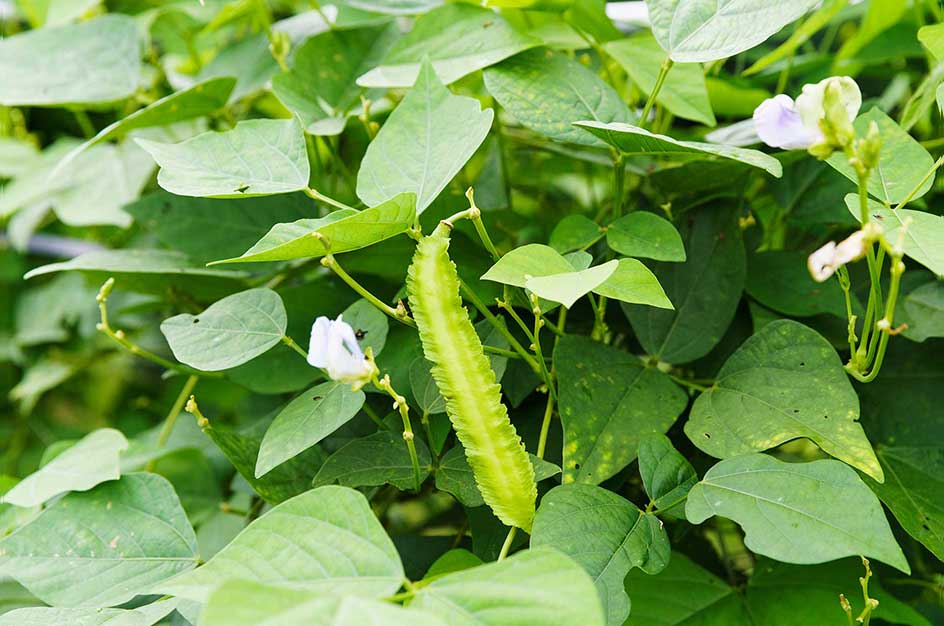
However, there are some things Okinawan consumers want that are not locally available. For example, a single white radish grown in Okinawa is more expensive than one from Kyushu. But that's strange, isn't it? It costs more to bring it from Kyushu. I would like to popularize the idea of eating locally by helping people consider how much money a farmer actually makes.
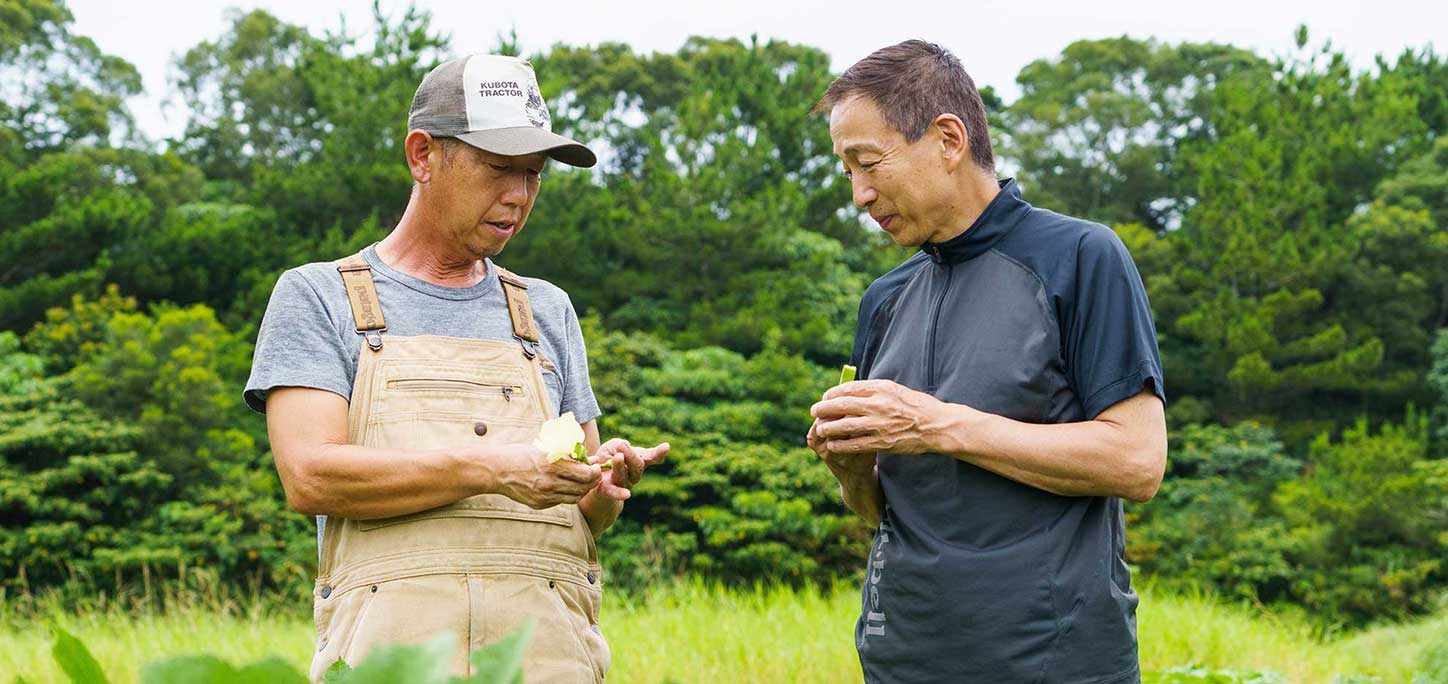
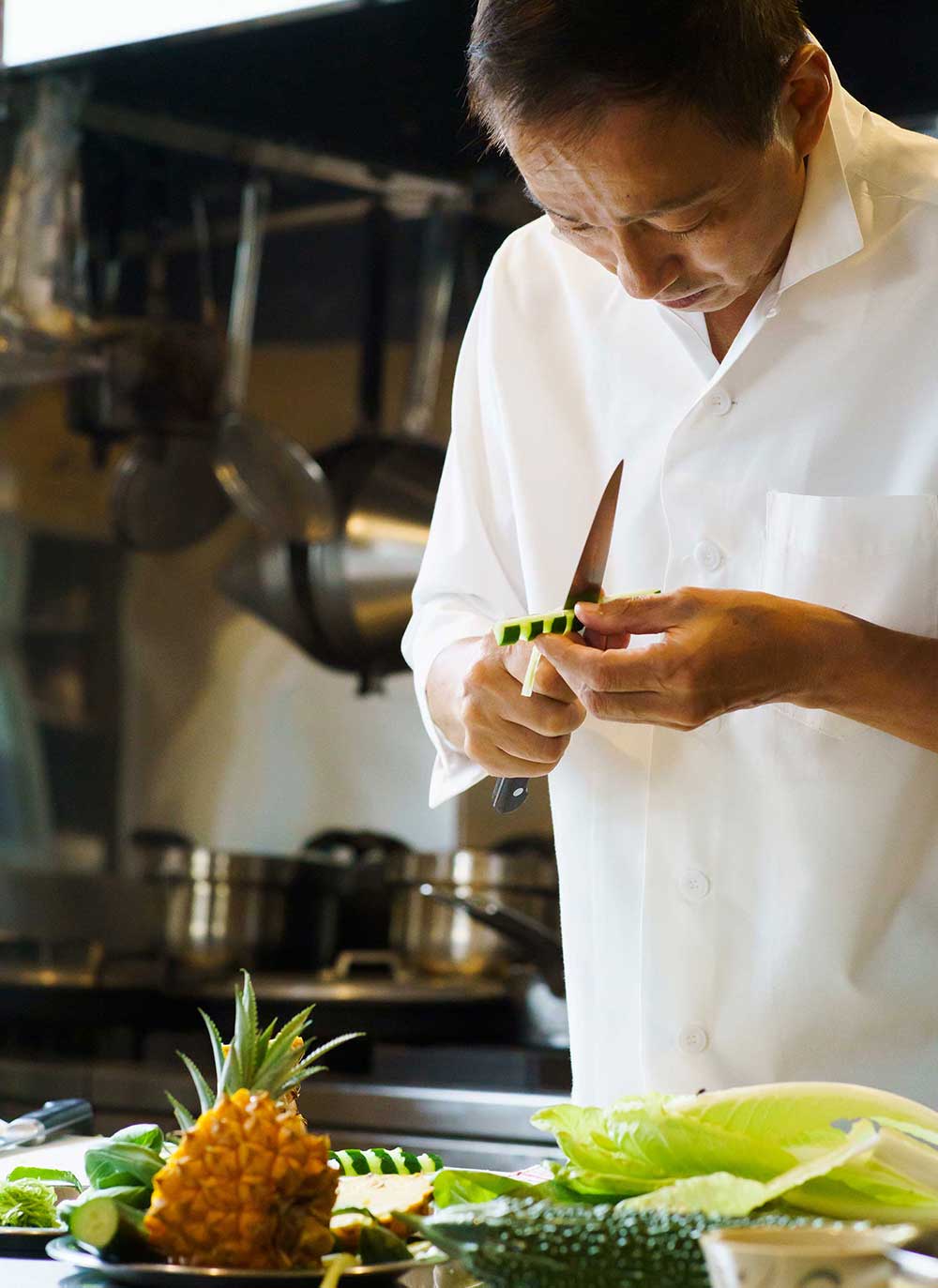
Mr. Yoshino: There are more opportunities to eat at home, and local people are beginning to stay at hotels in Okinawa. With these circumstances, I am happy that the number of hotels using local ingredients is increasing and farmers' markets are crowded. When I sent a message out for people to try local produce, customers who hadn't come to buy in Yambaru before responded. It would be great if this was not a one-time event, and that both consumers and producers will become more aware of the beauty of what is already here.
Mr. Nakamura: We must learn to consume products grown by small-scale farmers. In other words, local production for local consumption is important in creating a system that supports the livelihood of farmers. Eating local food also reduces transportation costs, which leads to a reduction in CO2. Promoting local production for local consumption is also necessary from the perspective of SDGs. If this foundation becomes stable, producers will expand the variety of produce, and chefs will be able to make requests. So we see the advantage of a strengthened and energized relationship between producers and consumers.
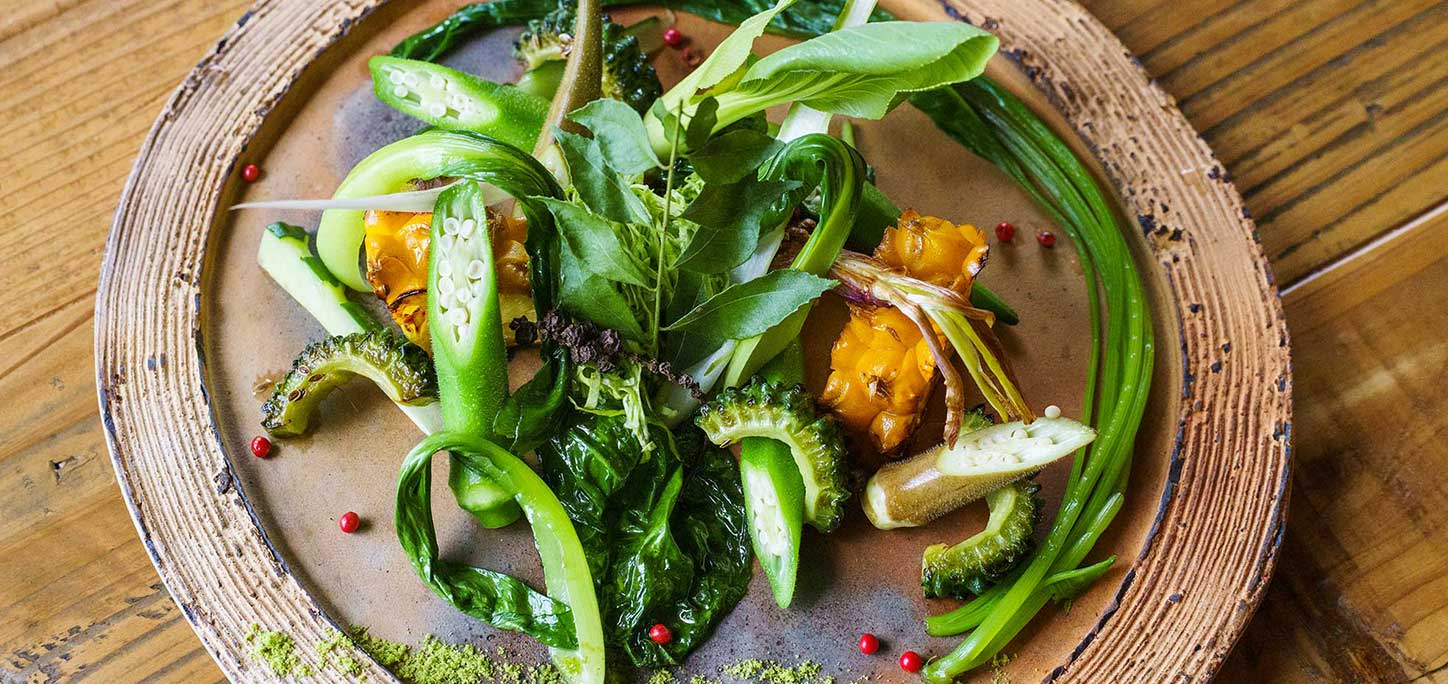
Mr. Yoshino: We work with about 15 people in total, but because we have a long production season with stable consumption, we have divided up production into groups of about 5 people. The wholesalers we sell to have strict standards so we either reduce or eliminate altogether the use of pesticides and, as a result, we can create a solid cultivation plan. For example, if growing becomes difficult in one area because of harsh winds, the plan provides for complemental support with members in other areas of Yambaru. If we are shipping from the beginning of June through November, we decide in advance how much can be cultivated and we sign a contract with a business partner. At this point, the total cost has been decided. So, even if there is a typhoon and the price of produce goes up, the price of what we ship stays the same because of the contract. In other words, the price does not fluctuate based on market conditions. Up until now, there was always a gamble in thinking that when the price is high, larger quantities can be shipped. But these days, the younger farmers want to incorporate farming into their lifestyle in a stable way. So if their income is stable, then they have confidence in their committment to farming and it becomes easier to create relationships like Mr. Nakamura mentioned earlier. Could I try growing this? Could you produce that for us? Communication encourages creativity. Usually when you try something new and it fails, you don't want to try it again. But with our system this kind of creativity becomes possible. Over the last few years, we have been able to promote this environment where we enjoy trying new challenges. Also, since there is no middle-man or middle company, the profits can be returned to producers or create savings for the consumers. Of course, this system only works if we have strong relationships with restaurants and retail stores. That is why we greatly welcome the efforts by Oriental Hotel Okinawa to use and promote local Yambaru products.
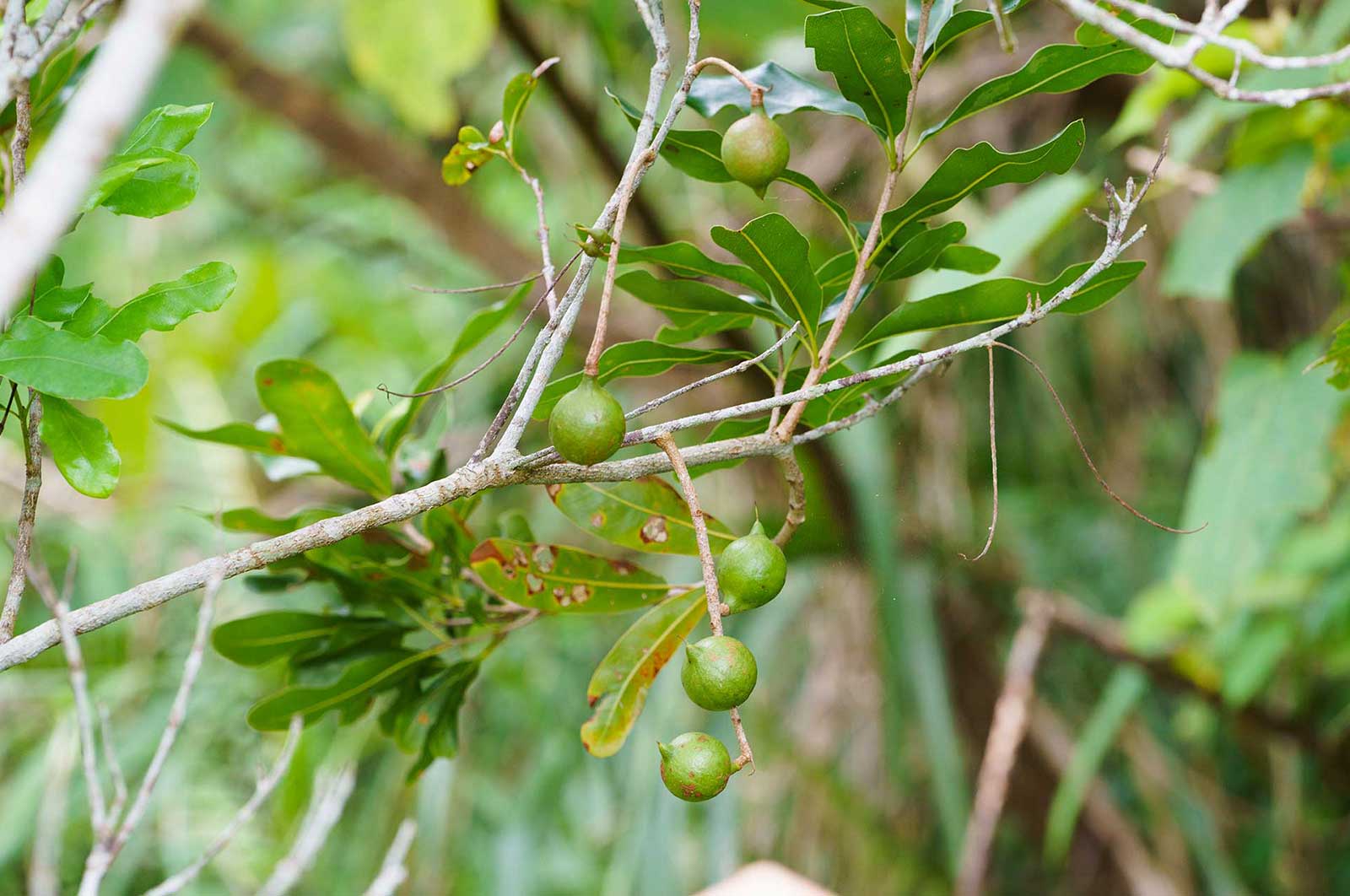
Mr. Yoshino: When there were many inbound tourists coming here, it was obvious that profit-seeking services were trying to deliver cheap products to a large number of customers and did not care about local production. However, as I have already said, the number of farmers and restaurants that want customers to enjoy the local products is increasing. In the big picture, I think you can say that the service provided by local people is when one can experience the true feeling of Yambaru. And so, local production for local comsumption becomes important. Local people eat local foods which leads to a richness in the area and deepens the charm of Yambaru. Profit-seeking services would not be welcome in such an environment, and I do not think locals would want such services introduced to travelers. I think we need to strengthen our efforts even more to communicate the value of local production for local consumption. The real pleasure of sightseeing is to be able to feel the authenticity of an area. It would be great to have more and more businesses that promote the appeal of Yambaru, and perhaps the criteria for choosing a hotel would be to be able enjoy local produce for breakfast or dinner.
Mr. Nakamura: Our hotel is right at the entrance of Yambaru. In order to introduce the appeal of Yambaru from a food-oriented point of view, we will need to cooperate with the entire region. That means businesses as well as producers and even local government will need to join together in the effort.
Mr. Yoshino: That's right. Farmers are delighted to know how their produce is used for cooking. It is a big source of encouragement to farmers when we invite a chef to "on the farm" to create a dish with local ingredients.This shows the true value of their products, not just the market value. In addition, interaction between chefs and farmers will lead to the discovery of other valuable ingredients that might not be on the market. If we can convey this to the tourists, it will create a new attraction as something that can only be experienced in Yambaru.
Mr. Nakamura: When a farmer introduces something that is not standard, that is an opportunity for a chef to show off his skill. That is the job of a chef. If a chef can communicate directly with local farmers, then they will discover some unique and delicious things that are not marketed. Value can be created from things that might otherwise be thrown away. A chef must have the ability to be open to suggestions and ideas from the farmer in order for this to happen. This can create new service possibilities that can ultimately be enjoyed not only by tourists but by local people as well. Through positive communication, Oriental Hotel Okinawa can encouage the appeal of farm to food in Yambaru for the enjoyment of anyone traveling through.